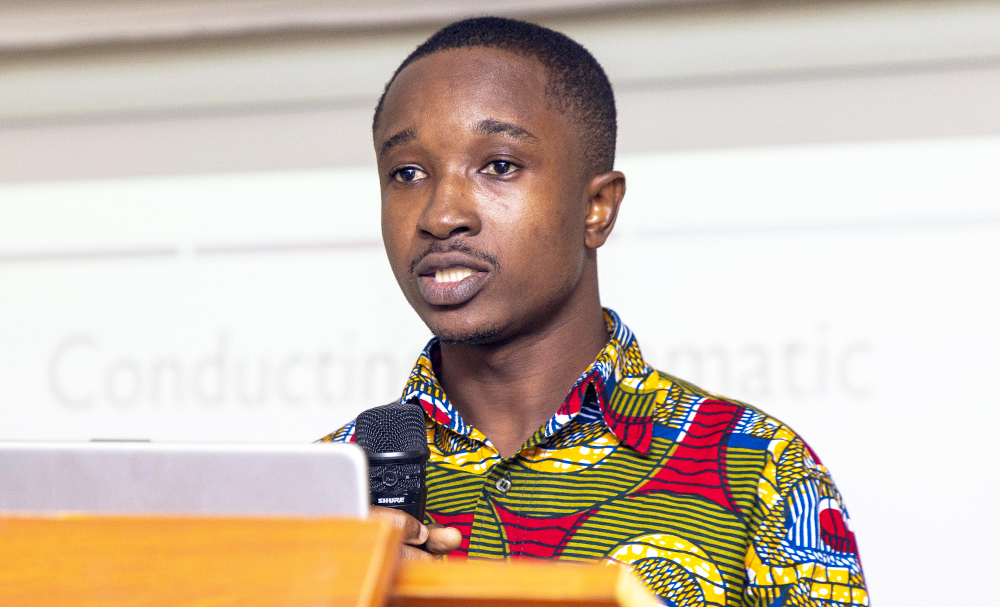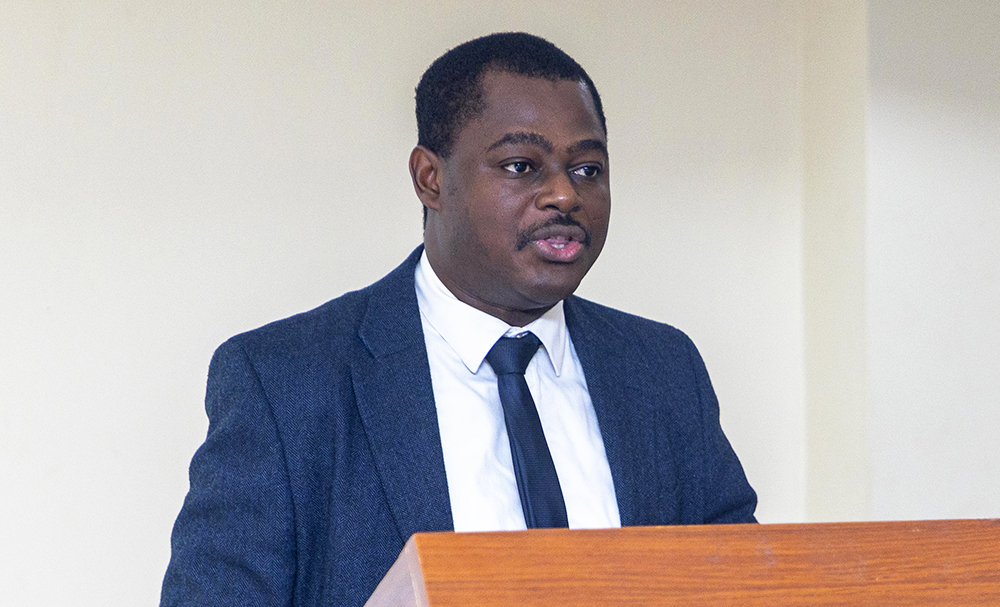The Office of Grants and Research (OGR) at the Kwame Nkrumah University of Science and Technology (KNUST), Kumasi, in collaboration with the KNUST Chapter of the Graduate Students’ Association of Ghana (GRASAG-KNUST), has organised a workshop titled "Systematic Review and Meta-Analysis." The workshop, held at the KNUST School of Business Postgraduate Block D from 29th July to 1st August 2024, aimed to enhance participants' research skills by providing hands-on experience in crucial areas of systematic reviews and meta-analyses, which are essential for academic and professional research.
Participants included faculty members, postgraduate students, and researchers from diverse academic backgrounds. The workshop covered several key learning areas, providing attendees with comprehensive knowledge and practical skills.

Mr. Emmanuel Ekpor, Co-founder of the Diabetes in Africa Knowledge Integration Network (DAKIN), presented on “Conducting the Systematic Literature Search: How to Develop a Search Strategy and Run a Search on PubMed.” He explained the process of developing a search strategy and conducting systematic literature searches, focusing on the PubMed database. He shared best practices and advanced techniques for efficient literature searches. Mr. Ekpor discussed the importance of using Boolean operators such as 'OR' and 'AND' and identified sources of data such as databases, grey literature, and hand searching. He used the example research question, "What is the prevalence of obesity among children in Africa?" to illustrate how to frame a search strategy using the COCOPOP framework condition (obesity), context (Africa), and population (children).
Dr. Mohammed Merzah, a PhD candidate at the University of Debrecen, Hungary, delivered a presentation on “Eligibility Criteria (EC): How to Develop EC Using Appropriate Frameworks.” He emphasised the importance of having clear and robust criteria to guide the review process. He further explained the steps involved in setting up EC, including defining inclusion and exclusion criteria, which help filter relevant studies from a vast pool of literature.
Dr. Cyril Dziedzorm Boateng, a Lecturer at the Department of Physics, delved into “Data Extraction: Tools to Use in Performing Data Extraction.” He discussed the tools and techniques used in data extraction for systematic reviews. He highlighted the importance of accurate and efficient data extraction in ensuring the validity of the findings. He also briefed participants about the various data extraction tools and methods which enabled them to gain practical insights into a critical step in the systematic review process.

Dr. Kwabena Poku Kusi-Mensah, a Psychiatrist, and Part-Time Lecturer at theDepartment Behavioural Sciences, KNUST presented on “Quality Assessment (QA)/ Risk of Bias (RoB) Assessment: Difference between QA and ROB; Various QA Tools” and explained the difference between Quality Assessment (QA) and Risk of Rias (RoB) assessments in systematic reviews. He introduced various QA tools and demonstrated how to perform a Risk of Bias assessment for Randomised Controlled Trials (RCTs). His session provided participants with essential skills to evaluate the quality and reliability of the studies included in their reviews.
Presenting on “Performing Meta-Analysis: How to Use Meta-Analysis Software,” Dr. Moses Ocan, a Lecturer of Pharmacology at Makerere University, Uganda, demonstrated how to use meta-analysis software to perform a basic meta-analysis. He guided participants through at least one operation, providing hands-on experience in synthesising data from multiple studies. His presentation aimed to equip participants with the skills needed to conduct meta-analyses and draw comprehensive conclusions from their data.
Participants were taught how to develop effective search strategies by defining research questions, identifying key terms, and selecting appropriate databases. The practical sessions included navigating academic databases such as PubMed, JSTOR, and Google Scholar, and applying advanced search techniques like Boolean operators, truncation, and filters. The workshop also covered the evaluation of sources, teaching participants to assess the credibility, relevance, and quality of sources using established criteria. Citation management was another key area, where participants learned to use tools like EndNote, Zotero, and Mendeley to organise references and format citations correctly.
The workshop was supported by notable partners including the Elite Research and Data Science Institute (ERDSI), National Public Health and Social Sciences (NPHSS), Translational and Integrative Clinical Health (TICH), International Network for the Availability of Scientific Publications (INASP) AuthorAID Ghana Hub, and the African Consortium for Statistical Research and Methods (ACSRM).
The collaboration between OGR and GRASAG-KNUST underscores the University's commitment to enhancing research capabilities and academic excellence. As the workshop concluded, participants were encouraged to apply the skills and knowledge gained to their research projects, further contributing to the advancement of academic research and innovation at KNUST.

















